
In a world that often emphasises the value of social connections, there’s an important distinction to be made between being alone and feeling lonely.
Many people associate solitude with a sense of isolation or sadness, but the truth is that being alone can be a fulfilling and rejuvenating experience. 😊
In this blog post, I will explore the nuances of being alone versus feeling lonely, understanding the importance of solitude, and embracing the positive aspects of both states.
Let’s get to it. 💕
The Difference Between Being Alone and Feeling Lonely:
Being Alone:
Being alone is a state of physical solitude, where you find yourself without the company of others. It can occur by choice or as a natural consequence of circumstances. Spending time alone provides an opportunity for self-reflection, relaxation, and personal growth.
It allows you to engage in activities that bring you joy, pursue hobbies, or simply enjoy a moment of peace. Being alone can be a deliberate choice, a time to recharge and connect with oneself. 🥰
Feeling Lonely:
Loneliness, on the other hand, is an emotional state that arises from a perceived lack of meaningful connections. It’s possible to feel lonely even in a crowded room if the connections are superficial or unfulfilling.
Loneliness is often characterised by a sense of emptiness, isolation, or a longing for deeper human connections. It’s a complex emotional experience that can impact mental and physical well-being. 😟
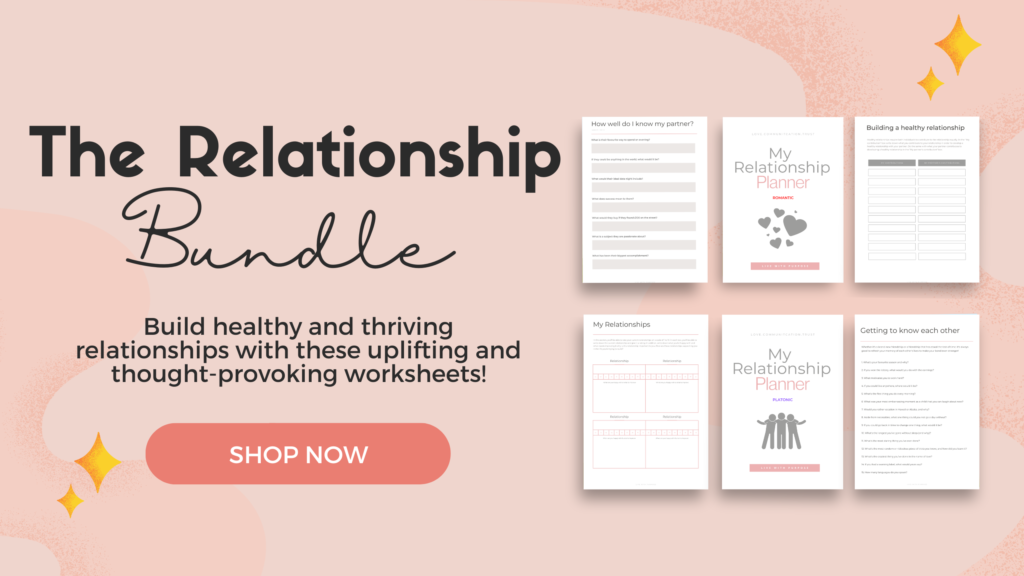
Embracing the Positive Aspects of Being Alone:
1. Self-Discovery:
Being alone provides an opportunity for self-discovery. It allows you to explore your thoughts, feelings, and interests without external influences. Use this time to reflect on your goals, values, and aspirations. Self-discovery is a crucial aspect of personal growth and can lead to a deeper understanding of oneself.
2. Independence:
Embracing solitude fosters independence. When you’re comfortable being alone, you become more self-reliant and less reliant on others for your happiness. This independence can empower you to make decisions based on your own needs and preferences, leading to a more authentic and fulfilling life. 🥰
3. Creativity:
Solitude often sparks creativity. When you’re alone with your thoughts, you have the mental space to generate new ideas, think critically, and engage in creative pursuits (yaay). Many artists, writers, and innovators find inspiration in moments of solitude, leading to the creation of meaningful and impactful work. 🎨
4. Rest and Rejuvenation:
Being alone allows for rest and rejuvenation. In a world filled with constant stimuli, taking time for solitude can be a form of self-care. It provides an opportunity to relax, recharge, and focus on activities that bring you peace and joy, contributing to overall well-being.
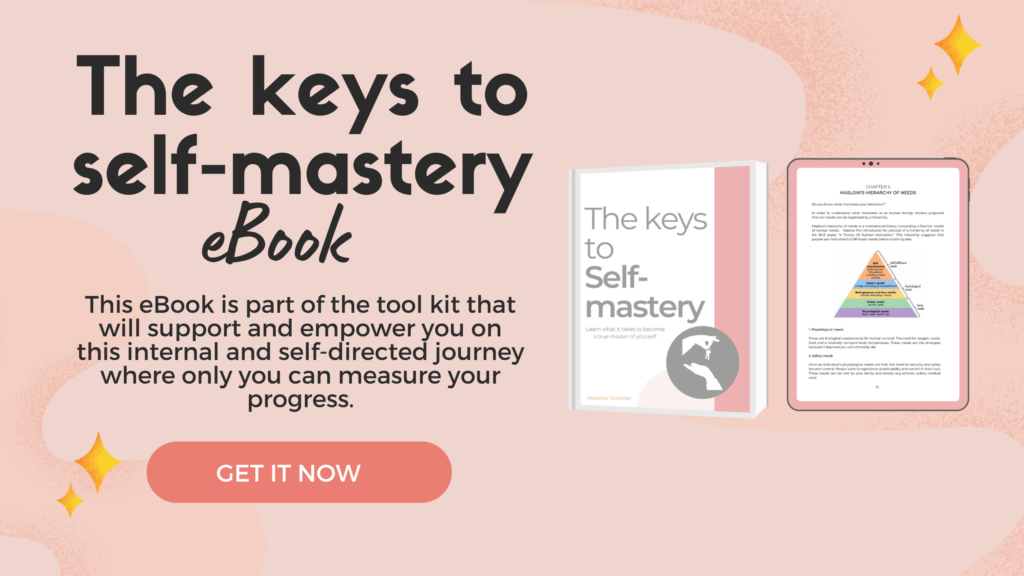
Addressing the Challenges of Feeling Lonely:
1. Cultivating Meaningful Connections:
If loneliness arises from a lack of meaningful connections, focus on cultivating relationships that nourish your soul. Seek out individuals who share your values and interests. Join clubs, organisations, or communities where you can meet like-minded people. Focus on getting yourself out there. Quality connections are often more fulfilling than a large social circle. 🫂
2. Volunteering and Giving Back:
Engaging in volunteer work or contributing to your community can alleviate feelings of loneliness. By helping others, you not only make a positive impact on the world but also connect with individuals who share a common purpose. Volunteering provides a sense of belonging and fulfillment.
3. Seeking Professional Support:
If loneliness becomes a persistent and overwhelming emotion, maybe consider seeking professional support. A therapist or counselor can provide guidance and a safe space to explore the root causes of loneliness. Addressing these issues with professional help can lead to a more fulfilling and connected life. 🫶
Finding Balance:
The key to a fulfilling life lies in finding a balance between being alone and fostering meaningful connections. Embrace solitude as a time for self-discovery, creativity, and rejuvenation. At the same time, actively cultivate relationships that bring joy and fulfillment. Recognise that both states are essential for a well-rounded and satisfying life. 💕
Conclusion
Being alone and feeling lonely are two distinct experiences, each with its own set of opportunities and challenges. Embracing solitude allows for self-discovery, independence, creativity, and rest. However, if loneliness creeps in, it’s crucial to address it by cultivating meaningful connections, volunteering, or seeking professional support. You are not alone. ❤️
Understanding the nuances between being alone and feeling lonely empowers you to navigate both states with intention and purpose. Ultimately, finding a balance between solitude and social connections contributes to a rich and fulfilling life. Embrace the positive aspects of being alone, foster meaningful connections, and savor the journey of self-discovery in this beautiful dance between solitude and companionship.
Pin this post for a reminder 📌 👇
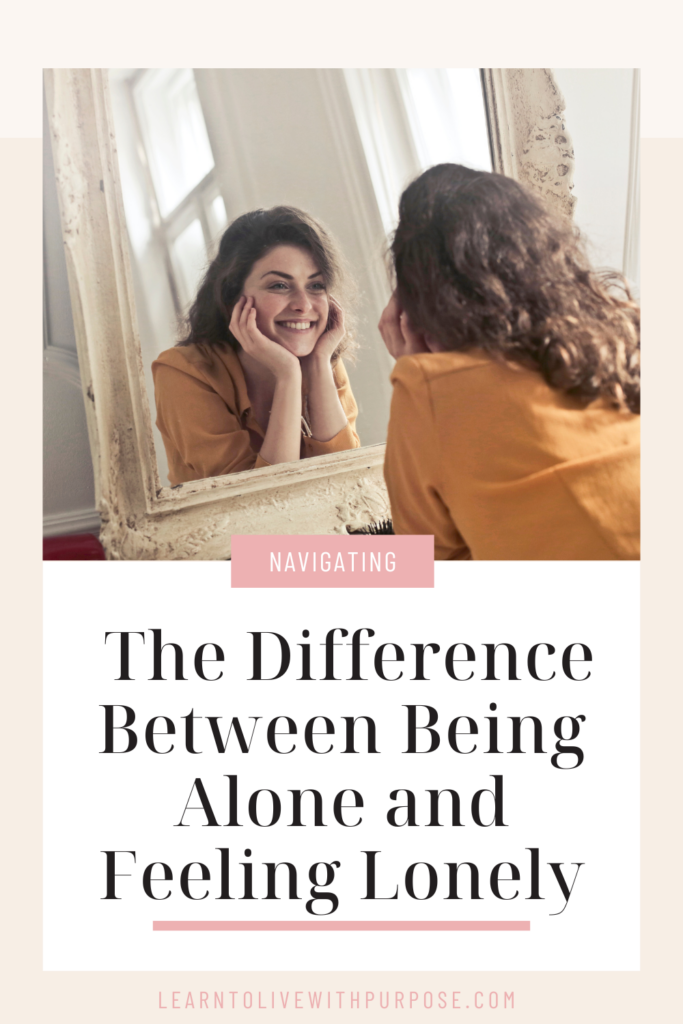
Related Blogs
Things to Say “No” to for you to Live a Happier Life
How to Stop Settling For Less Than You Deserve
How to Become the Best Version of Yourself: A Guide For 20-Somethings
It can be hard. Life — especially in the 21st century — comes at you fast.
You’re constantly bombarded by information from social media, advertisements, and everything in between. It can feel like you’re always on alert, trying to stay informed about the latest trends and hot topics so that you don’t miss out on anything. 🥵
If you are anything like me, then you definitely value living a good life. You know that the little things count and that it’s not just about working hard, but also about playing hard too.
Intentional living is the practice of intentionally making decisions that align with your values instead of letting outside forces dictate your actions.
Intentional living is more than just putting your ducks in a row – it’s about creating an abundant and fulfilling life for yourself. 🦆
It means choosing to live deliberately, thinking through your choices, and focusing on what matters most to you. Intentional living is a process of continually identifying your goals and re-evaluating them as new circumstances arise.
It’s committing yourself to being the best version of yourself on a daily basis. And the best news is that you don’t need to give up any of your inherent activities or interests in order to incorporate intentional living into your life.
In an age where we are all scrambling to keep up with what everyone else is doing, intentional living offers a breath of fresh air and a much-needed break from unhealthy stressors. 😔
If you want to live a more balanced life, read on to discover why intentional living is the best thing you can do for yourself right now.
Set your intentions for the day, week and month – Intentional Living 101
Every day, set some intentions for yourself.
What do you want to get done? What do you want to accomplish? What type of mindset do you want to put yourself in? 🤔
Your intentions for the day can help you to stay focused on what is important and to avoid getting caught up in any unhelpful activities or thoughts.
Your intentions for the week are important for setting the tone for your week and giving yourself some structure. It may sound rigid, but having a set schedule can help you to get more done. 🤷♀️
You should also set some intentions for the month so that you can plan out your schedule and make sure that you are on track with your long-term goals.
RELATED: Want to learn more about setting goals? Check out our 4-week mini-course “How to set goals and achieve them“
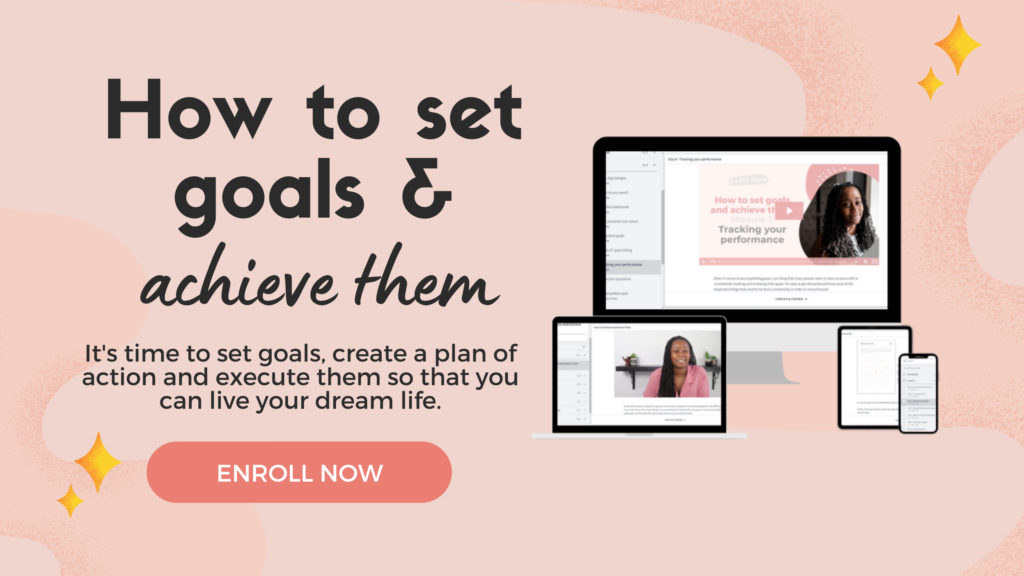
Declutter and organise your life
We have all heard that ‘ A cluttered desk is a cluttered mind.’
The same can be said of a cluttered life. If you have tons of stuff lying around that you have no room or need for, then it’s likely that you are struggling to make time for pursuits that are important.
Making time for things that help you grow as an individual can be challenging if you are bombarded with commitments that are unimportant to you and your development. 😬
Clutter can be anything from material possessions to thoughts and emotions.
You can start to declutter your life by writing down some of the things that you feel are holding you back from growing.
Mental clutter can be cleared by getting rid of distractions and changing your mindset so that you are less likely to be affected by it. 😌
Spend time with people who support you
You can’t please everyone and you shouldn’t even try.
When you are in your early 20s, you are likely to be going out and spending time with all sorts of people, whether you know them well or not.
People can influence you differently; some can be positive, whereas others can be negative. 😒
It is extremely important to be selective with the people that you spend time with. That doesn’t mean that you have to be rude and shun everyone who doesn’t ‘meet your standards’.
It just means that you should be mindful of who you allow into your life. You should be spending time with people who have a positive influence on you – people who encourage you to grow and who support you in your ambitions. 💕

Take care of your mental health.
Mental health is something that is often overlooked in the world of instant gratification and instant results.
It’s easy to get caught up in the idea of ‘I want to be happy now!’ instead of committing to the long-term changes that need to happen in order to achieve the happiness that lasts more than a couple of minutes or hours. 🤨
Mental health might not seem relevant to your daily life, but it can actually have a serious impact on your productivity and general well-being if it’s neglected.
You should be mindful of your mental health by committing to a consistent exercise routine and a healthy diet. 🏃♀️
You should also set aside time to totally unplug from the stresses of modern life. It is also important to reduce the amount of stress in your life as much as possible.
Stress is the enemy of happiness and productivity.
Commit to a cause that is important to you
By committing to something bigger than yourself, you will not only be helping others but you will also be helping yourself.
When you dedicate yourself to helping others, you stop thinking about yourself and your problems for a bit. You start to focus on the needs of others and this will help you realise that you are not alone.
There are others out there that are in need of something. Whether that is companionship or just a listening ear. 🤗
You can choose to commit to anything that you are passionate about. It can be anything from working with animals to helping out at a homeless shelter.
It is important to remember that you do not have to commit to something permanently to be helpful. You can commit yourself to a cause for a specific amount of time and then move on when you feel that you have done everything that you could. ❤️

Be mindful of your time and energy
A lack of time is one of the reasons that people give for why they don’t live more intentionally. 👀
However, the truth is that people waste a lot of time in their daily lives without even realising it. You can combat this by being mindful of the things that are eating up your time. Because at the end of the day, there is time. You just have to make what you want a priority.🤷♀️
When you are spending time on certain activities, you should be asking yourself why you are doing them and how they are helping you to reach your goals. The same goes for your energy.
You have a finite amount of energy for each day and it is important that you are aware of how you are using it.
Don’t hold yourself to impossible standards
It is good to have high standards for yourself, but you need to be realistic with them. 👈
If you are always expecting more from yourself than you reasonably can achieve, then you will end up feeling unproductive, frustrated and down on yourself.
There will be days when you don’t meet your expectations and other days when you do. There will be ups and there will be downs. That is the nature of life. 🥲
Don’t make yourself feel bad when you don’t live up to your standards. Instead, just recognize that it happens and then move on. That’s the thing with living intentionally. It is a continual process.
You don’t just one day decide to live that way and then forget about it the next day. It is a daily choice that you have to make.

Intentional Living – Conclusion
Intentional living is all about making conscious choices and focusing on what truly matters.
It’s about taking the time to identify our priorities and focus on achieving our goals. It’s about understanding what makes us happy and pursuing it with intention.
Intentional living also means taking the time to reflect, appreciate the little things, and savor life’s moments. 💛
It’s about recognising the power of small acts, like taking a walk in nature, spending time with family and friends, and having meaningful conversations.
It’s about understanding that our time and energy are limited resources, so we should use them wisely.
Intentional living is all about creating a life that reflects our true values and priorities. And it can lead to a more meaningful, joyful, and fulfilling life – which is what you deserve. 🤗
So if you want to make the most of your life, why not start living intentionally? You’ll be amazed at how much better life can be when you focus on what really matters.
Pin this post for a reminder 📌 👇
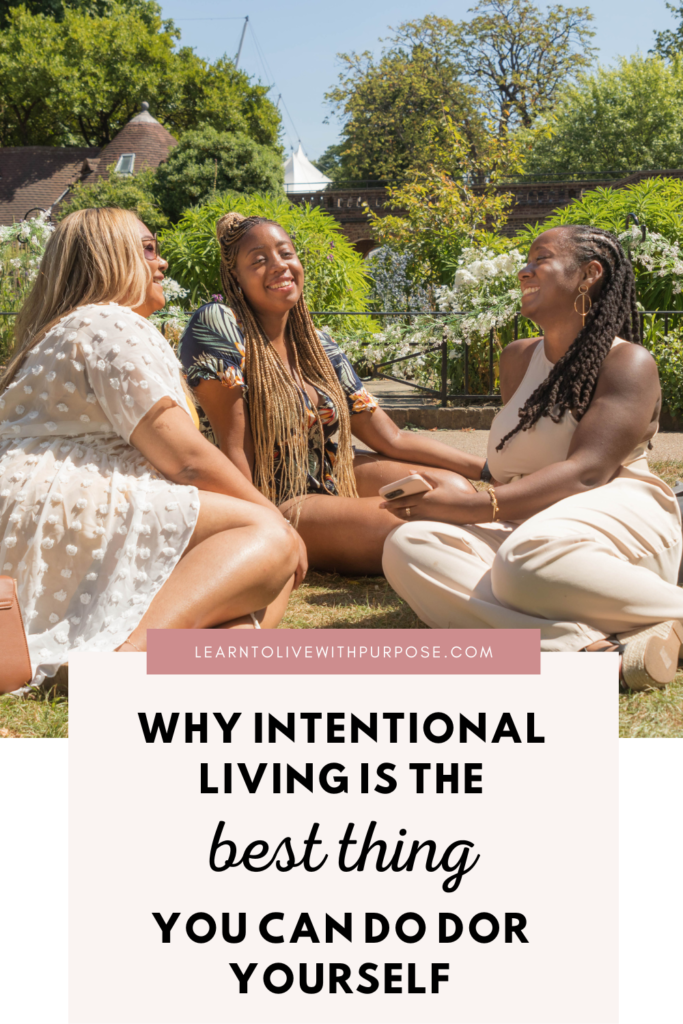
Related Blogs
How to Stop Procrastinating and Get Stuff Done
Wondering how to be productive from home? Working from home gives you the opportunity to focus on your projects and tasks without the usual distractions that you can face in the office.
However, this can also backfire if you’re not productive and don’t have the self-discipline to sit down and do the work needed while you’re at home. 🖥️
The balance of being productive at home takes some effort, but it is possible with the right tricks up your sleeve. Working from home offers many perks including a reduction in commuting time and spending more time with your loved ones.
There will be days when you prefer to stay in pajamas all day, or press that alarm clock 3 times but allowing these bad habits to accumulate will make a big difference in your productivity and standard of work over time. ☹️
Even though working from home may seem like it would be less stressful and less taxing, it comes with its own set of challenges.
Working from home is a dream for so many people, but can also present some challenges.
How do you stay productive? 🤔
How do you keep your work life separate from your home life? 🤔
How do you tackle loneliness or isolation? 🤔
How can you make sure that working from home actually helps you succeed and not just make it harder? 🤔
Working from home doesn’t have to be more challenging than working in an office. If you put in the effort and take some simple measures, it can be much more beneficial than anything else.
Here are some ways to make your life easier when working from home:
Set Up a Workspace
A workspace is more than just a spot to put your laptop. It is a place where you can clear your head, focus your energy and get things done.
If you work from a home office, you’ll likely have plenty of space to choose from. If you don’t, you may have to get creative.
If you have room for a standing desk, this can be a great option for those who have back issues and like to do some stretches when they work. It may not be the best option for those with leg pain, though. 😂
You may also want to consider setting up a designated workspace in a spare bedroom or another quiet corner of your house.
There are a few tips to keep in mind when you’re setting up your workspace. First, make sure you have enough lighting. You don’t want to be struggling with dim lights.
Next, you’ll need a comfy place to sit. Make sure you are sitting upright and are not hunched over or slumped down in your chair. Check that you can’t be distracted by anything on your desk and put your phone on silent when you’re meant to be in the zone. 📱
These small adjustments can make a big difference in your productivity.

Don’t Check Emails First Thing in the Morning
Resist the urge to check your emails first thing in the morning. 🙅♀️
You’ll want to check in on your team and projects but don’t do it right away. Instead, set yourself up for success by setting a daily schedule. Start your day with a quick review of your to-do list and calendar.
If you are working on a large project, you may want to spend some time writing out a plan of action. This can help you stay on track during the day without being distracted by emails.
When you have a set schedule in place, you’ll find that it is easier to ignore the temptation of checking your inbox the first moment that you have a free moment.
You’ll be less likely to let your emails distract you from your main goals for the day. 😌
Dedicate Time To Your Biggest Tasks
Think about the tasks you have on your list that take the most time then break up your day into smaller chunks of tasks.
These are the ones you should be dedicating more time to. Whether you have a big project coming up or you’re just trying to get caught up with work, you’ll need to schedule time for these tasks and make them a priority. ⌛
Find a place on your calendar or checklist where you can mark down the tasks that you want to get done. This will help you stay on track without feeling like you’re trying to do too much at once.
If you have kids or other family members who live with you, take the time to really consider when they need attention and when you’ll have the most uninterrupted time to focus on your tasks. 👨👩👧
For example, if you have younger kids who are in school during the day, you’ll want to focus on your tasks then than in the evenings when they’re home and need your attention.

Utilize Productivity Tools
There are a couple of tools that can help you stay organized and focused throughout the day.
✨ Calendar
Make sure you have a calendar where you can note down important events, appointments and tasks for each day.
✨ To-Do List
A to-do list can help you stay focused on the items that need to be completed each day.
✨ Digital Notebook
You can also use a digital notebook to track your thoughts and ideas as you think them throughout the day. This is a great option for those who like to write things down.
✨ Headphones
If you are working from home and have noisy neighbours, you might want to invest in a pair of headphones. 😂
✨ Social Media Timer
You may want to set a timer so that you aren’t spending too much time on social media throughout the day. Those Tik Tok dances can wait a while longer.
RELATED: Learning how to be productive at home doesn’t need to be hard! Check out our Goals & Planners Bundle to help keep you organised.
Hold Yourself Accountable
You may want to consider joining a productivity challenge or forming a productivity partnership with a coworker, friend or family member.
You can hold each other accountable by sharing ways that you are trying to improve your productivity and ways that you are getting more done. 😁
You might also want to consider setting a goal for how many hours or tasks you want to complete each day.
This can help you focus on getting things done and staying productive throughout the day.

Set Times For Work and Leisure
If you dont want to get on the road to burnout then you MUST schedule in breaks.
Make sure that you have set times for when you will work and when you will cut off your work for the day. This may be helpful if you are easily distracted or have a lot going on in your life.
Working hard and setting a strict schedule for your work time can help you stay focused, but you also need to set aside time for leisure and relaxation. 🛀
This will help you stay balanced and let off some steam, which can make you even more productive in the long run.
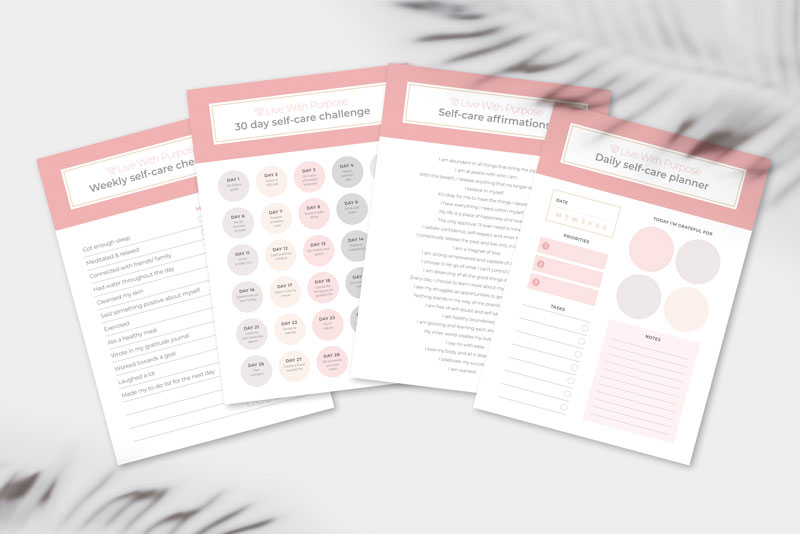
GRAB YOURSELF OUR FREE SELF-CARE BUNDLE!
It’s time to take some time out for yourself love! Check out this four-page bundle of self-care goodness that you can use to relax, refresh and rejuvenate. You deserve it sis.
Pop your info in and download your bundle now ❤️
How to Be Productive at Home – Conclusion
Working from home can be a dream come true for many people. However, it also comes with challenges and additional pressures.
The best way to overcome these challenges is to be prepared and have a solid plan in place. There will be days when you prefer to stay in pajamas all day long, but there are a few ways to make your life easier and more productive while working from home.
You can set up a workspace, don’t check emails first thing in the morning, and dedicate time to your biggest tasks. Utilize productivity tools, hold yourself accountable, and set times for work and leisure. With the right tricks up your sleeve, working from home can be incredibly rewarding and easy. 💕
Pin this post for a reminder 📌 👇

Related Blogs
The Top 10 Ways to Improve Your Productivity
Financial freedom is a term that has been thrown around quite a bit. But what does it mean, and how do you achieve financial freedom in your 30s? 🤔
Financial freedom is the point at which you no longer have to work in order to meet your day-to-day expenses. Instead, you have a substantial amount of money set aside that could take care of these expenses and leave you with excess cash for other things.
Millennials are often portrayed as a generation that values experiences over possessions, collaboration over competition and social impact over personal wealth. 💰
However, while this may be true of many young people today, financial independence and security remain the primary goal for most millennials.
In fact, a recent survey found that members of the millennial generation actually value personal finance more than any other generation.
Even if you feel like you have neglected your finances up until this point, it’s not too late to get back on track. 😌
Here are five steps you can take to become financially independent and secure in your 30s.
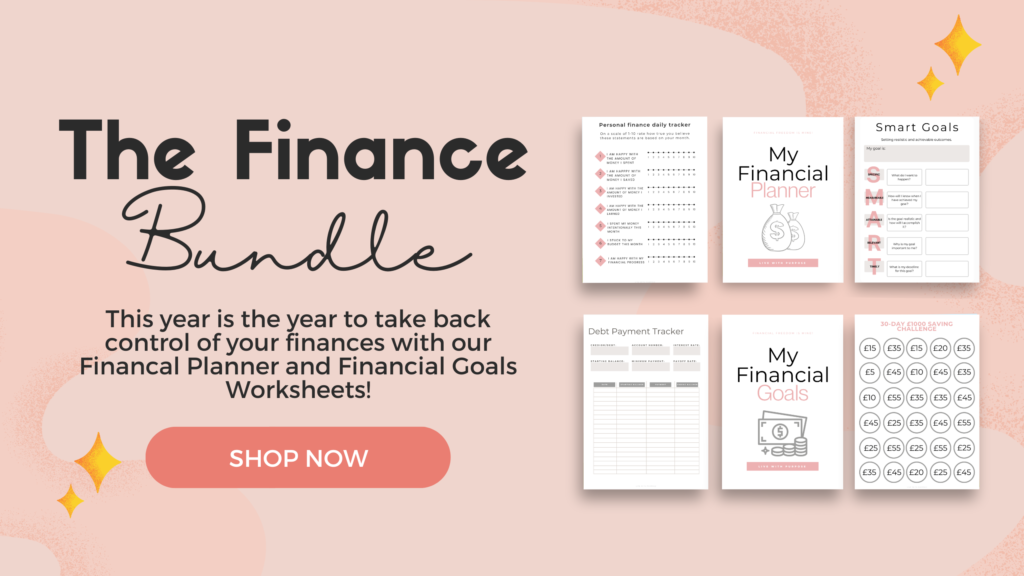
Develop a solid financial foundation
Before you attempt to achieve financial freedom, it is important to lay a solid foundation for your finances.
Start by creating a budget that accounts for your monthly expenses. It is also important to track your expenses in order to get a better idea of where your money is going. What isn’t measured cannot be changed. 🤷♀️
Once you have a better understanding of your expenses, you can create a budget that helps you to save more and spend less.
Next, get a good grasp on your credit score. Your credit score will impact your financial future, so it is important to understand how it works and how you can improve it.
Additionally, it is also a good idea to have a savings account and an emergency savings fund that has enough money to cover at least six months of living expenses.
Make saving a priority
One of the easiest ways to boost your savings and put yourself on the path to financial freedom is to prioritize saving over spending. 🙂
Aim to build your savings account as soon as possible by putting aside a specific amount every month. If you are employed, you may also want to look into setting up an employer-sponsored retirement account such as a 401(k) or 403(b).
You can also open an IRA account, which is a self-directed account that offers a range of investment options you can choose based on your risk tolerance, time frame and investment goals. 🤑
Another way to boost your savings is to cut back on expenses, particularly discretionary expenses like dining out, entertainment and shopping. Start small by focusing on just one or two expenses, and then expand from there as your budget becomes more streamlined.
Finally, you can also increase your income by taking on some overtime or taking on a side hustle.

Automate Your Savings
*Carrying on from my point above* 😂
If you have made it a goal to save a certain amount of money each month, start automating the process.
Open up a retirement account and an investment account, and have a portion of your paycheck go directly into each account.
If you have debt, consider making extra payments towards that. Every little bit will help you get out of debt much quicker.
You can also open a savings account to start building up your emergency fund. If you have an overdraft or credit card debt, you will be able to breathe a lot easier once you have the money in the account.
Build good credit
Your credit score plays a big role in your financial future, so it is important to make sure it is in good standing.
Your credit score is an indicator of how much money you can borrow from lenders.
Having good credit can help you save money on interest rates when you take out a mortgage or car loan and can even help you to get a job in some cases. 💼
Take some time to understand how your credit score works and how you can improve it over time. 🕒

Don’t rely on your credit card
Credit cards often get a bad rap, but they can be a useful tool if used responsibly.
A credit card allows you to make a purchase now and pay it off over the next 30-60 days. In fact, credit cards are one of the most effective ways to build your credit. 💳
However, credit cards can also be dangerous for your financial health if not used responsibly. If you’re not careful, you can end up with an insurmountable amount of debt that’s difficult to pay off. 😬
Instead of using your credit card, consider getting a low-interest debit card or cash-back credit card to make purchases. If you use your credit card, make sure you pay it off completely each month to avoid interest. If you don’t, you could end up racking up a lot of debt.
Pay off your student loans ASAP
Student loan debt has become a burden for many members of the millennial generation. In fact, the average millennial with student loan debt has £28,000 in debt, which is higher than the average for similarly aged members of Generation X or the Baby Boomer generation. 🥲
Although student loan debt can be helpful in some situations, such as if you have a degree in a high-demand field, most students would benefit from a more affordable form of higher education. 🤷♀️
One way to reduce your student loan debt is to look into income-driven repayment plans. These plans base your monthly payment on your income and overall financial situation.
Depending on your situation, you may be able to get your loans forgiven after a certain amount of time. If you don’t have the money to pay off your student loans, you may want to explore your deferment and forbearance options.
Generally, you can defer or forbear your student loans if you are unable to make payments because of financial hardship. It’s definitely something to look into. 🤔

Build your assets
Growing your assets includes building your savings, paying off your debts and investing in assets that will grow over time. 🏠
You can build your assets by starting a side hustle, maxing out your 401(k) or 403(b) and investing in long-term investments like real estate. If you have money saved, you can also look into investing in assets like stocks or bonds.
If you don’t have a lot of money saved, you may want to focus on growing your assets by working on some side hustles or freelance gigs. This will allow you to put more money into your savings account and build your assets over time.
Keep in mind that growing your assets does not necessarily mean spending a significant amount of money. You can also build your assets by reducing your ongoing expenses. 💰
RELATED: What does success mean to you? Take the quiz here
Pay off high-interest debt
Although growing your assets is important, it’s also important to pay off high-interest debt, such as credit cards and student loans, as quickly as possible. 🏃♀️
This will not only help you to take care of these debts more quickly, but it will also save you money in the long run.
If you have high-interest debt, you may want to consider refinancing or consolidating your debt. This will allow you to refinance your existing debts at a lower interest rate, which will save you money in the long run. 💸
If you have credit card debt, you might also want to consider making a payment extra each month. This will let you pay off your debt more quickly and will also save you money in the long run.
Debt is a trap that will keep you from achieving financial freedom. If you can’t pay it off all at once, at least commit to making a monthly payment.
You will get a feel for how good it feels to be free of debt. You may find that you have more money each month to put towards savings and investments.
If you have a mortgage, don’t worry. As long as you are able to make your monthly payments, you will achieve financial freedom eventually. ❤️
Make sure you have enough life insurance
Life insurance is often a forgotten part of financial planning, but it is an important part of protecting your loved ones after your death.
The right amount of life insurance will vary based on your age, your family situation and your financial situation. 😊
In general, you want enough life insurance to make sure your loved ones are provided for after your death.
It is also important to ensure your life insurance policy is adequate enough to cover the financial obligations that depend on you.
Establish an emergency fund
With a healthy emergency fund, you can prepare for unplanned expenses like car repairs or medical bills. Establish an emergency fund that is large enough to cover at least three to six months of living expenses.
An emergency fund is an important part of any financial plan. It will let you sleep easy at night knowing that you will have the funds to take care of any unexpected costs that come up. 🏥
If you are ever between jobs, have medical issues, your car breaks down or experience any other financial emergency, this fund will be there to help you out and you’ll be glad you have that safety net. 🙃
The fund can be kept in a savings account so that it is easy to access in case of an emergency where you need to have access to your money straight away. You don’t have to put it in stocks or bonds to get a good return.
A big reason why people don’t save is that they have expenses. But if you have expenses, you have assets, too. What are those assets? They are your monthly living costs.
When you’re young, it’s easy to overlook these costs, but as you get older, you will realize just how important it is to save up 3-6 months of living costs. This is the ultimate financial freedom hack. 👈
Having 3-6 months of living costs in an emergency fund will also give you the flexibility to make those big purchases.
Whether you want to start a business, travel, or buy a house, having this fund will give you the freedom to take the risks you need without the added pressure of debt.

Invest in Yourself
It’s never too early to start planning for your retirement. But when you’re in your 30s, you have another goal to think about: investing in yourself.
This is the time when you can really set yourself apart from the crowd. Learn a new skill. Start a side hustle. Travel to new places. Do anything that you want to do in the early stages of your life. 😅
Education is a great investment. If you have the ability to attend school full-time, you can finish a degree/boot camp or a course and have a significant boost to your earning potential in a short amount of time. 💵
Commit to a Health Habit
Health habits are crucial to financial health. Taking care of yourself now will help you stay healthy and drive down your future healthcare costs. 🧑⚕️
Find a healthy habit you like and commit to it. You can even partner with a friend or family member to help keep yourself accountable.
Improve your diet, get more exercise, or start meditating. Your future self will thank you. 🧘♀️
RELATED: Ready to live a healthier life? Check out our Health Bundle here

Network and Ask for Help
As you get older, you will find that you have more in common with people than when you were younger. You will make connections at work, school, clubs, community events, and even online. 💻
This is the perfect opportunity to network and start asking for help. If you have financial goals you’re trying to meet, consider asking a fellow coworker for advice. If you have a friend who is a financial expert, have them mentor you.
You’re never too far away from someone who can help you advance in your personal and professional life. 🙂
Conclusion
The quarter-life crisis is a real thing and it can hit you at any time. Even in your 30s. If you’re in your early 30s and still struggling to get your financial life together, you might be wondering if there’s hope for you.
But don’t worry! You still have a few good years left before hitting retirement age. With the right attitude, determination, and discipline, anyone can achieve financial freedom in their 30s. 💕
Even if you feel like you have neglected your finances up until this point, it’s not too late to get back on track. In fact, becoming financially secure sooner rather than later will provide you with a sense of peace and independence that will last the rest of your life. 😌
Pin this post for a reminder 📌 👇

Related Blogs
The Top 10 Ways to Stop Living From Paycheck to Paycheck
When our emotions get the best of us, it can be challenging to cope with them. The result is that we may act in ways that are not aligned with who we are as an individual.
These out-of-character moments are commonly referred to as “emotional breakdowns,” “episodes,” or “crises.” However you refer to these moments, coping with them effectively is key.
But what exactly is emotional regulation? 🤔
Emotional regulation is the ability to respond to your own feelings and the feelings of others in an effective and constructive way. It’s also known as “emotionally intelligent” behavior, and it’s something that goes further than just not having a temper tantrum or keeping your cool.
When we’re stressed, anxious, or just having a bad day, it can be challenging to keep our emotions in check. In the midst of all that chaos, we may feel like there’s no way to get a handle on our feelings and regain control of our sanity. 😬
But don’t worry — you aren’t alone in feeling this way. It can be challenging at any point in life to manage your emotions and find peace within yourself.
Learning how to practice emotional regulation strategies can help you identify when you feel an emotion and give you tools for handling those emotions appropriately in future situations. 😌
The inability to manage your emotions can negatively impact any area of your life, from work performance and academic endeavours to personal relationships.
with some practice and patience, you can overcome these challenges and continue growing as an individual.
The first step is knowing how to practice emotional regulation in your everyday life so you can manage your stress levels better when they flare up again. Here are some tips on how to bring them back under control:
Step 1: Become aware of your breathing
Your breathing pattern can be a clue as to whether you’re experiencing an emotion. For example, if you’re in a situation where you’re feeling anxious, you might notice that your breathing becomes shallow or rapid. 😮💨
Breathing exercises can help you calm down, regain your composure and regulate your emotions. Deep breathing is a great way to calm your body and bring your emotions back under control.
When you take slow, deep breaths, it sends a message to your body that everything is okay – your heart rate slows down, and your blood pressure drops. 🩸

Breathing Exercises
👉 Counting Breaths
This is a very simple breathing exercise. You’ll just count every time you exhale and put a number on it. Start with one and try to go up to 10. Once you hit 10, go back to one and keep going until you feel your anxiety level decrease.
👉 4-7-8 Breathing
This is a variation of the previous exercise. Place your tongue against the roof of your mouth, and breathe in for four seconds, hold your breath for seven seconds and exhale for eight seconds. Keep doing this until you feel calm.
👉 Mindful Breathing
This is one of the easiest ways to calm down. It’s a great beginner’s exercise, and you can do it anywhere. Close your eyes, take a few deep breaths and focus on your breath. This will take your focus off whatever is making you anxious and help you relax.
Step 2: Recognize what you’re feeling
This might sound too simple, but the first step to regulating your emotions is identifying the emotion you’re experiencing.
One way to help you do this is to use an emotion wheel. An emotion wheel is a chart that shows various emotions and their intensity levels. You can try out different wheels online and pick one that works for you. (Check out my feelings wheel here)
After you identify your emotion, spend a few minutes reflecting on it. Why do you feel the way you do? What situation led to the emotion you’re experiencing? Is there anything you can do to change the situation?
When you recognize an emotion, the next step is to figure out what needs to happen to keep it under control. 😌
Step 3: Identify the trigger
Once you’ve identified the emotion you’re experiencing and how intense it is, you can use that as a springboard to understand what might have triggered the emotion.
There’s no need to start a full-blown investigation, but taking a second to ask yourself what happened before the situation escalated can help you avoid the same problem in the future.
It’s important to note that most commonly, emotions don’t exist in a vacuum – one triggers the other.
If you feel overwhelmed or stressed out, you might find yourself feeling angry. You might be sad that your workload is so high and then feel guilty for being so stressed out. 😑
If you can identify the original trigger, you can figure out the best way to handle the situation to avoid these emotions in the future.
Step 4: Take a moment to breathe and relax
Once you’ve identified what you’re feeling and what triggered the emotion, you can use relaxation techniques to calm your body and mind.
They may not stop the emotion from happening, but they can help you get a handle on it as soon as it starts to take over.
You can try a few relaxation techniques, such as:
👉 Progressive muscle relaxation
This is a great way to relax your body. Focus on one part of your body at a time, and clench and then release that muscle.
👉 Visualization
This is a great way to calm your mind. Visualize yourself in a relaxing place, or think about something that makes you happy.
👉 Meditation
This is one of the best ways to calm your mind. There are many different types of meditation, and you can choose the one that works best for you.

Step 5: Find a healthy way to release the emotion
This is when you’re ready to let go of that emotion and move on. 😌
There are healthy and unhealthy ways to handle emotions. Healthy ways include talking to friends and family members, journaling, going for a walk, and using positive self-talk.
Unhealthy ways of dealing with emotions include drinking too much, engaging in risky behavior, and isolating yourself from the people around you. 😔
When you feel ready to let go of an emotion, try to find a healthy way to release it and move on. Journaling is a great way to express your emotions and get them out of your system.
If you feel like you’re holding on to an emotion, consider what’s holding you back from letting it go. Try and get all those feelings out on paper. ✍️
Coaching and Counseling Sessions
If you feel like you’re struggling to regulate your emotions, you might benefit from talking to a professional.
You can find a therapist or counselor that specializes in emotional regulation and ways to cope with negative emotions. 🧑⚕️
You can also try online therapy and see if it helps you feel better. If you’ve tried all of the above and you’re still struggling to keep your emotions in check, therapy might be the best option for you.
A therapist can help you learn new techniques for regulating your emotions and improving your coping skills.
You can also work on identifying unhealthy thought patterns and behavior patterns and start to change them so that you feel better overall. 💕

Managing Expectations
Are you expecting too much of yourself? Sometimes, our expectations of ourselves are too high, and this can cause emotional frustration. 🤯
How can you regulate your emotions when you’re expecting too much from yourself? Here are some tips:
👉 Accept your imperfections
We are human, and we all have faults. You cannot be perfect 100% of the time, so don’t expect yourself to be. Accept your imperfections, and you’ll feel less frustrated with yourself.
👉 Take care of yourself
You cannot be 100% there for yourself and other people if you’re not taking care of yourself first. You have to look after number one.
👉 Be thankful
Be thankful for all the good things in your life. This will help you stop focusing on the negative and appreciate what you have.
👉 Avoid negative self-talk
Don’t put yourself down. You are enough just the way you are.
How to practice emotional regulation – Conclusion
Emotional regulation is an important part of being an adult. It’s important to understand your emotions and how they affect you as well as others around you.
However, not all adults are able to successfully regulate their emotions, especially if they have had little experience in the past. If you’re having a hard time regulating your emotions, don’t worry – it’s not something that happens overnight. 🤷♀️
It takes practice, and it takes patience. You can improve your ability to regulate your emotions by becoming more aware of your own feelings and those of others, identifying triggers and practicing techniques like journaling and meditation. 🧘♀️
By practicing emotional regulation techniques, you can develop techniques for managing stress and negative feelings so that they no longer control you.
Pin this post for a reminder 📌 👇

Related Blogs
Letting Things Go: It’s Easier Than You Think
What is Self-Efficacy & Why is It Important
How to Overcome Fear & Get What You Want
Did you know that you can plan your best year ever by identifying what you want in your life?
As a millennial, we’ve grown up with the notion that now is the time for change. We starting to see new opportunities come our way as young individuals especially when it comes to businesses/careers, hobbies and making more mula.🤑
This means there will be more opportunities than ever before for people to start over and pursue their dreams. If you’re ready to take control of your life, read on for our ultimate guide on how to make this year your best year yet!

Set Your Goals
Setting goals for yourself, as well as for your life and career, is one of the most important aspects of planning your best year ever.
Not only will setting goals help to define your year, but it will also allow you to prioritize what is most important and what you want to achieve. This will allow you to focus your time and efforts on those things that matter most.
Setting goals can seem like a daunting task, especially if you believe them to be far-fetched. It can be easy to get lost in planning, work, and other aspects of daily life, forgetting to set goals for yourself.
It is important to keep goals simple and easy to understand. If you overcomplicate them or put too much into them, they may become overwhelming. 🥲
RELATED: How to set goals and achieve them mini-course
The “How to set goals and achieve them” mini-course is designed to get you from idea to execution with all the tools in-between.
Goal setting helps us to create and visualise our desired destination in life. Could you imagine your life without goals?
🤔What would motivate you to get out of bed?
🤔What would drive you to work on yourself?
🤔What would be the purpose of doing anything?
Sounds scary huh? But that’s not what you’re about. You’re about creating a life for yourself that you envision every day. You just need a little help getting there.
Throughout this mini-course, you will learn practical exercises that will provide you with all the essential tools you need to start making positive changes to your life.

Let me give you an overview of what you’re going to learn:
Module 1: Small steps big changes
What small actions can you take every day that will help you complete your goals faster and more efficiently? Sign in to find out more 😉
Module 2: Small steps big changes. – implementation week
Put what you’ve learned from module 1 into action by implementing these small changes into your day so that these small actions can turn into daily habits.
Module 3: Daily routine
Learn how to create a morning, afternoon and evening routine so that you have an intentional plan on how to turn your dreams into reality.
Module 4: Daily routine implementation week
Let’s see how your daily routine works out in the real world.
Are you excited as I am right now? (ahhhh) 😀
Get the complete rundown and enroll in the mini-course by clicking the button below
Okay, now let’s get back to the rest of this blog.
Network, Network, Network!
It’s important to remember that networking is not only about meeting people you have never met before and trying to figure out how you could work with them.
It can also be about meeting people you already know, who have similar goals and aspirations as you do. Whether it’s a professional networking group you belong to or a community network of people around a common interest, networking is a great way to meet people and make connections. 😄
Networking can take many forms, so keep in mind what works best for you. Some people prefer to attend organized networking events, others like to make connections online.
Networking can help you find new opportunities, meet people in positions of influence, and it can even lead to a new job or new opportunities for yourself. 💼
Whether you make business/career connections or friends for life. Networking is a great way to put yourself out there and gain valuable relationships.
RELATED: What does success mean to you? Take our quiz here
Have a Planning Day
If you have not set any goals for your year, it’s probably time to get started on it. 😂
All of this planning takes time and energy, and there is no better way to spend it than on yourself. Today, schedule an hour in your day just for yourself.
Spend this hour doing whatever makes you feel most relaxed, keeping in mind that you are planning your best year ever. You may want to try a new hobby, listen to some audiobooks, or even meditate. 🧘♀️
Whatever your preferred method may be, make sure to keep this hour in its entirety.
RELATED: Check out our Goals & Planner Bundle

De-Stressing & Unplug
If you find yourself constantly stressed and overworked, it may be time to take a step back and look at your daily routine.
Are there any aspects of your life that you could simplify or remove from your schedule? There are many stressful aspects of daily life that can affect you, such as work, school, family, money, and health. 👩⚕️
In order to have a healthy happy day you need to spend time on something that makes you feel happy and content, such as taking a nap, doing solo activities, listening to your favorite music, or reading a book. 📖
If you find that you’re suffering from a high level of stress and anxiety, it’s time to take a step back and re-evaluate your daily schedule and see what can be amended to make your life that little bit easier.
Exercise Regularly
Your health is the most important thing in the world. It can affect everything from your mood to how long you live. 😶
If you don’t exercise regularly, you’re setting yourself up for poor health and probably some aches and pains. It’s important to exercise regularly, and there are many ways to do so.
Here are a few:
👉Go to the gym (alone or with a friend)
👉Get outside and walk while listening to your favorite music
👉Do a couple of laps in the swimming pool
👉Host a dance party
👉Try Boxercise
Whatever your preferred method may be, make sure to keep it up. Regular exercise can boost your energy levels, help you sleep better, and even help you to lose weight.
It’s important to keep in mind that your body changes over time, so it’s important to keep up with your exercise routine no matter how old you get.

Eat Healthy & Make Time for Shows and Travels
Your diet is one of the most important aspects of planning your best year ever. Eating healthy and staying away/limiting junk food will give you energy and help to maintain a healthy weight. 💪
It’s important to make time in your daily schedule for a healthy meal, or at least a snack, and for water intake. Healthy eating can boost your energy levels, keep you healthy, and help to maintain a good mood.
It can also help to keep you focused and provide you with the nutrients to stay focused on your goals and ambitions.
It’s also important to make time for fun, exciting activities in your life.
Whether it’s going to a sporting event, taking a trip with your friends, or just going out for dinner and drinks. Life is for living, go and enjoy what you love. 💕
Find a Job you Love or Learn a New Skill
Having a job that you love and are passionate about will allow you to spend more time doing the things that you enjoy and are good at.
For the majority of people, they spend most of their day at work. Why not make it meaningful? 🤷♀️
If you love your job and have no issues with it then why don’t you pick up a new hobby or skill? No matter how old you are you should never stop learning. What’s the first thing that comes to your mind when you think about accepting the challenge of taking up a new skill? – Whatever it is; begin. 🙂

Are you ready to plan your year?
It’s important to remember that planning your best year ever is not something that will happen overnight.
It takes time, effort, and dedication to make things happen. Even if you feel like you don’t have enough time in your day, try to find a few minutes where you can take a break and relax. 🛀
This can be during your lunch break, while you’re waiting in line, or when you’re simply taking a break. Make sure to make time for the things that really matter and make you happy, and planning your best year will be one step closer to reality. ❤️
Pin this post for a reminder 📌 👇

Related Blogs
The Power of Self-Discipline & Why You Should Have It
Everything You Need to Know About Habits
5 Ways to Self-Mastery: The Self-Efficient Lifestyle
Do you know that feeling of being so exhausted and bored with your life that you just want to crawl into a hole? 🙃
Your life doesn’t have to be falling apart for you to feel that it is. The pressure of modern life can leave us feeling harried, overworked and stressed beyond belief.
This is no doubt a lot to deal with when your life feels like it’s in disarray. But if you let yourself feel the pain, you can find the courage to change your circumstances and get your life back on track once again. 😊
It might not be easy, but you have to do it if you want to have any chance at all of staying happy and healthy for the long term. Life isn’t always going to be rosy, and neither are we.
We all go through hard times from time to time – whether those times are expected or completely out of the blue. Whether they are temporary or not, difficult phases will be a part of life. How we react to them is what makes us different from the next person. 🤷♀️
If we can find the will inside ourselves to keep pushing forward instead of letting our circumstances drag us down into despair, we can become stronger as individuals and better people by default.
Work. Eat. Sleep. Work. Eat. Sleep. Pretty monotonous right? 😬
Maybe this is your life at the moment. But, don’t worry! This doesn’t mean you have to stay trapped in a rut for the rest of your life. There are plenty of ways you can get your life back on track when you feel tired and bored:
Start small to build up momentum
If you just want to try something new and see what happens, then why not?
Make a small change to your daily routine and see how it goes. Maybe it’s taking a walk instead of driving, or making lunch a few times a week so you don’t have to spend money every day. 💰
This can be a great way to build up momentum and see what happens.
Do what makes you feel good
This is what you’ve got inside of you. This is what makes you, you. You might not like yourself at the moment, but that’s not what’s holding you back from accepting who you are as a person.
You’re not a failure just because you’re going through a hard time right now. You’re human, and you’re allowed to feel bad sometimes. The important thing is that you don’t let it define you. 🙂

When you’re tired and bored, figure out your goals
When you’re not feeling like yourself, it can be tempting to just go through the motions and do what you normally do—but you can easily end up in a rut if you don’t take the time to figure out what you actually want.
Ask yourself: What do I actually want for my life right now? What do I want to happen in my life? What do I want to experience? What’s missing from my life right now? 🤔
Whatever you come up with, write it down and put it somewhere you can easily see it. Having your goals clear will help you figure out how to get your life back on track when you’re tired and bored. 🥱
Find Your Purpose
One of the best ways to get your life back on track is to find your purpose.
In the end, there is no such thing as a “normal” life. We are all going to experience sadness, anger, joy and more in our lives. It’s part of being human, and it’s important that you don’t let it consume you.
It’s okay to feel bad sometimes. However, it’s not okay to let it take over your life. The important thing is that you don’t let it define you. You’re allowed to be sad and a bit overwhelmed during a rough period in your life, but don’t let it take over. Don’t let it eat you up from the inside. 🙅♀️
Not sure where to start?
Learning how to live with purpose is the beginning of your life’s roadmap. When you don’t know where you are going you can end up in any direction and get lost in the land of “I don’t know who I am!”.
What happens when you get lost? You get frustrated, overwhelmed and confused. This FREE mini-course will give you all the basics you need to start you on the path that leads you to the life that you want to live.
It’s waiting for you!
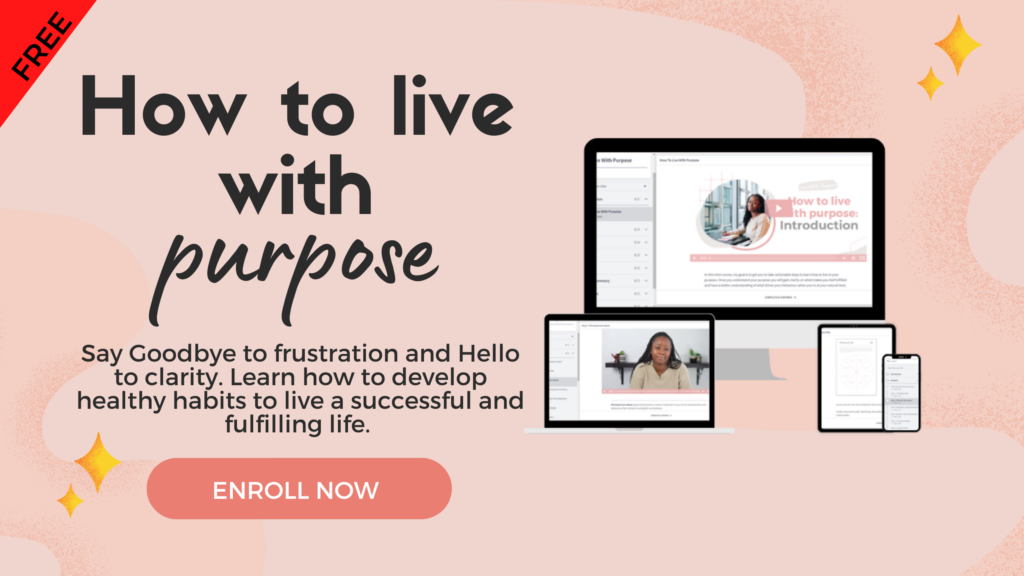
Course format: I’m going to take you on a four-week length mini-course that emphasizes on taking daily action on how to live with purpose. There are 4 modules within the mini-course with each module having its own set of training videos and resources.
You will focus on: Your WHY, What success means to you, Your personal core values, your passion Vs. Purpose + Plenty more.
What you will learn: How to map out your ideal life, How to incorporate living out your passions as well as your purpose in your daily life.
This is for you if: You crave meaning and fulfillment, you’re unsure of how to connect the dots between your dreams and reality, you’re ready to level up in your life, You’re frustrated because your lack of direction is holding you back from what you know you are capable of.
What you get inside: Exclusive resources, checklist, personal development challenge, value-packed short videos
What are you waiting for? Enroll today! 😁
Keep exercising regularly
Exercising regularly can help you feel better and more energetic, even if you’re feeling tired.
Even if you can’t make your exercise time fun, try to make it as enjoyable as possible. Exercising regularly can also help you feel better about yourself, both mentally and physically. 🏋️♀️
If you’re feeling tired and bored, it can be comforting to have something to focus on that makes you feel a little bit stronger and more confident.
Exercise is an incredibly powerful medicine for the human body. It’s a great way to boost your mood, build patience and self-confidence, and feel good about yourself as a person.
It’s also an incredibly beneficial way to relieve stress and tension from your body, making you feel like yourself again even if you don’t feel like it on the inside. 💪
RELATED: Ready to make your health a priority? Check out our Health Bundle here
Communicate with your network
The best way to get your life back on track is to take action. Initiate conversations with people you’ve been meaning to connect with, whether that’s someone at work or a family member you haven’t talked to in a while.
Another way to get your life back on track is to initiate conversations with people you’ve been meaning to connect with, whether that’s someone at work or a family member you haven’t talked to in a while. 👨👩👧
Another great way to rekindle that passion for life is to spark some conversations with your network.
Having a solid support system of friends and family is incredibly important during tough periods in life, whether those periods are filled with sadness or anger.
You might be going through a rough patch right now, but don’t let it go on for too long. Life isn’t always going to be easy, and having a solid support system of people in your life can help you get through those rough patches as quickly as possible. ❤️
This doesn’t mean that you should dump everyone who ever cared about you, but you do need to balance the support that you receive with the support you give to others. 🤗

Take A Break From Social Media
Social Media can be a great way to stay connected and keep up with friends, but it can also be a huge source of stress and anxiety in modern life. 😑
Chances are that you’re on Social Media during the hours that you spend doing your job, working out or sleeping. As a result, you’re probably spending a lot more time on Social Media than you’d like to.
Meaning that you’re neglecting parts of your life that you should be paying the most attention to. 🙁
If you’re not careful, this could lead to serious issues with anxiety and stress.
Be a little bit organised
Sometimes we get so caught up in our busy lives that we forget to take care of the most important things in our lives: ourselves. 👩
Take a few moments to get yourself organised. Make a to-do list, clean your closet, take out the garbage, anything that helps you take care of yourself will help you get your life back on track when you’re feeling tired and bored.
If you’ve been neglecting your basic needs like eating sometimes, showering, and sleeping enough, getting back on track when you’re bored and tired might be a challenge.
Make sure you take care of those basic needs so you can feel better and be more productive. 😌

How to get our life back on track – Conclusion
Being bored is a very common feeling we all get from time to time. Boredom is an experience that occurs when someone is either bored or uninterested in what they are doing. 😮💨
There are many ways to get your life back on track when you just don’t feel like getting out of bed. If you’re bored or tired, you can try one of these ways to get your life back on track.
You can try starting small to build up momentum, keep exercising regularly, initiate conversations with your network, and be a little bit organised.
Life isn’t always going to be rosy, and neither are we. We all go through hard times from time to time – whether those times are expected or completely out of the blue.
Whether they are temporary or not, difficult phases always call for drastic measures. If we can find the will inside ourselves to keep pushing forward instead of letting our circumstances drag us down into despair, we can become stronger as individuals and better people by default. 😁
The important thing is that you don’t let it take over your life. You’re allowed to be sad and a bit overwhelmed during a rough period in your life, but don’t let it take over. Don’t let it consume you.
Pin this post for a reminder 📌 👇
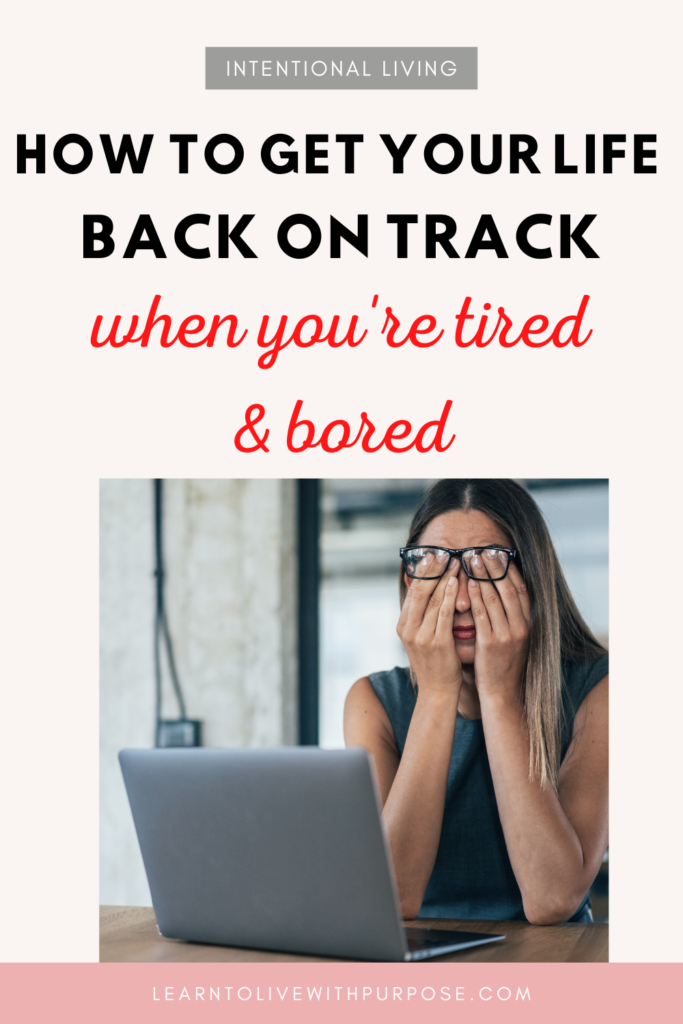
Related Blogs
How to Stop Procrastinating & Get Stuff Done
Everything You Need to Know About Habits
How to Overcome Fear & Get What You Want
The pace of life in the digital age has quickened drastically over the past few years. Where once we would have to wait until tomorrow to see what tomorrow had in store, we can now get a glimpse of what’s around the corner in real time whenever we want. 😬
The downside of this is that all it takes for us to feel insecure and anxious about the unknown is one single negative tweet or Facebook post that serves as a trigger for something much deeper within us.
We are constantly exposed to new information, images, and trends at a rapid pace, which means we also need to do so at the same rate if we want to keep up. 😒
This anxiety-inducing speed of change poses major challenges for humans who are used to having extended amounts of time to process things before acting on them.
It’s no secret that social media has played a significant role in amplifying these anxieties and keeping them at bay requires more effort than it does other days.
Taking risks should be celebrated not diminished because you’re not following the status quo. Here is a list of ways you can feel better about taking risks and avoid the fear of missing out. 😄
Focus on what you can control
The key to taking risks and keeping yourself grounded during uncertain times is to focus on what you can control rather than what you can’t.
Spending time and energy on something you can’t change is simply asking for a headache. 🥴

The first thing we do when we’re in a new situation is to assess where we stand and where others are in relation to us. However, it’s important to remember that we are not in a bipolar relationship with others, we are all connected to one another and our world in the same way.
This allows all of us to feel the emotions and be in the same space as others at any given time.
Regardless of what may be going on around us, it is imperative that we stop, take a step back, and ask why we’re in a particular situation in the first place. 🤔
What is the goal we are trying to achieve by being in that situation? Why are we doing what we’re doing?
We need to learn to become more aware of the way we interact with the world and what we are doing simply because we’re doing it.
If we begin to take an active role in shaping our own experience we become more empowered and capable of making changes. 😊
Focus on why you’re taking the risk
How we come to take risks is important. There’s nothing wrong with taking risks, in fact, it’s encouraged but it’s important to remember that risks are taken for a reason.
If you aren’t sure about why you’re taking a particular risk, focus on why you’re doing the risk instead.
Wondering why you’re taking a risk can help you identify the purpose and where the thought stems from. Why do you want to take that risk? Was there a specific reason you wanted to take that risk? What’s the purpose of doing it? 🤔
These are all important questions to ask oneself while on a risk-taking journey. If we think more about why we’re taking risks, we can be much more confident in our decisions.

Practice mindfulness and accept uncertainty
Be present.
The amount of time we spend online is significant and this is something that needs to be acknowledged. 😶
If we want to take risks, we need to be present with our actions, thoughts, and feelings. We all have moments where we have to accept the fact that we don’t know what might happen. 🤷♀️
It’s important to remember that this is part of life and that we need to deal with it and accept uncertainty.
Practice mindfulness.
Mindfulness is an important practice that can help you deal with anxiety and accept uncertainty. There are many mindfulness exercises you can try.
These exercises can help you to relax and focus on what’s happening in the present moment. You can also learn to be more mindful of the way you communicate and interact with others.
RELATED: Mindfulness and meditation are one of the chapters in our eBook The Keys to Self-mastery. Read more about it here.
Look for opportunities to grow and learn
Beyond the basic lessons that we all need to learn at some point in life, there are also those serendipitous moments where we can learn about others, about ourselves, and about our world in a meaningful way.
Start paying attention to your surroundings and the people around you. Who are they? What are they doing? What are they thinking? What are they feeling? If you can start paying attention to these things you can begin to draw interesting parallels between your life and the others you meet. 🤝
If you want to grow, you need to look for opportunities to do so. 👀
Opportunities can be both found and created. Opportunities come up when you least expect them and when you’re ready to accept them for what they are.
Opportunities can be found in many forms, such as conversations with people, reading articles, listening to podcasts, watching videos, taking classes, etc.
Never lose hope, even when your situation seems dire. There is always a way out. 🛣️
FREE SELF-CARE BUNDLE

GRAB YOURSELF OUR FREE SELF-CARE BUNDLE!
It’s time to take some time out for yourself love! Check out this four-page bundle of self-care goodness that you can use to relax, refresh and rejuvenate. You deserve it sis.
Pop your info in and download your bundle now ❤️
Stay connected with your community
The best way to keep yourself grounded while taking risks and growing as a person is to stay connected with your community and the people who matter most to you. ❤️
Keep a journal and when you’re feeling anxious or insecure, spend some time writing down your thoughts and feelings. Journaling can be helpful when we have major emotions or thoughts that we’re not sure how to process.
Journaling can also help us to clarify our thoughts and feelings as we can write them down and then re-evaluate them.
When we are connected to the people around us, we are able to see where they are coming from and know that we aren’t alone in our fears, anxieties and uncertainties. This gives us the confidence to push forward and take risks because we know that we aren’t alone.

Taking risks and avoiding FOMO – The bottom line
Social media has revolutionized the way we communicate and share information, but as we can see with the examples above, it has also contributed to the anxiety and insecurity that many people feel today.
While technology has provided us with many opportunities, it has also highlighted the fact that we are not always going to be happy or satisfied with the way things turn out. 🥲
It’s important to remember that the key to happiness and a sense of security lies within us and not in the things we have. We need to make an effort to focus on what we can control, what we are doing right now, and what we want to achieve in the present.
We also need to practice mindfulness and accept uncertainty by focusing on what we can control, why we’re taking risks, and accepting uncertainty by looking for opportunities to grow and learn. 💕
Pin this post for a reminder 📌 👇

Related Blogs
The Top 10 Daily Habits of Successful People
How to Stop Settling For Less Than You Deserve
How to Become the Best Version of Yourself: A Guide For 20-Somethings
Self-mastery is a strategic and lifelong process of understanding one’s own motives and values, as well as their impact on other people, the world around us, and our personal relationships. 😊
Self-mastery is one of the most important skills we can develop as human beings. If we do not learn to master ourselves, we will never be able to lead others effectively. We need to understand who we are and what makes us tick so we can make good decisions and take effective actions.
Living a self-sufficient lifestyle requires mastering various skills that enable us to function independently from everyone else. Self-mastery is not about learning how to become perfect or an expert in everything.
Instead, it’s about understanding our weaknesses so that we can work on them until they no longer hold us back from living the life that we want. It’s also about discovering our strengths so that we can leverage them instead of hiding them away. 😌
If you want to master any skill, whether it’s playing an instrument, cooking, or writing, there are three steps you need to take. First, you need to learn the basics. Second, you need to practice those skills until you feel comfortable with them. Finally, you need to put in the extra effort to master them. 🏆
Once you understand these concepts, you will be able to apply them to anything you do. You can use them to become more confident in yourself, improve your relationships, and even help others.
There are many ways to self-mastery, but not all of them are effective for every individual. Luckily, there are certain principles that most people can follow to improve their quality of self-mastery in a sustainable way. Here are five easy steps you can take today to start practicing self-mastery:
Step One: Reflect and define your values
Before you can begin to strengthen any areas that might be holding you back, it’s critical to understand what exactly you want out of life.
There are many ways to define your values, and they can change as you grow and change connected to the world around you.
However, there are some aspects of self-mastery that remain important for everyone, no matter what stage of life you’re at. Throughout your journey toward self-mastery, be sure to stay true to these values so that you can continue to grow and evolve as a person.
⭐ Self-awareness
Being self-aware means recognizing the motives and values behind your actions, words, and everyday habits. When you don’t recognize your own values and motives, you make decisions and engage in behaviors that don’t align with your authentic self. This lack of self-awareness makes it difficult to grow and learn.
⭐ Self-esteem
Self-esteem is about feeling worthy of yourself as a person. When you don’t feel like you’re deserving of good things in life, it’s easy to get caught up in materialistic obsessions and forget how important personal growth is. A healthy self-esteem is essential for self-mastery.
⭐ Self-honesty
Healthy self-honesty means holding yourself accountable for the actions you take and the things you say. When you don’t practice self-honesty, you’re often lying to yourself about your motives and values. Over time, this dishonesty can lead to emotional and mental exhaustion.

Step Two: Define your goals and identify your strengths
Even if you’re practicing self-mastery, you can’t move forward until you first define your goals and strengths.
There are many ways to do this, but one effective method is to list out all of your values and then put a check next to each one that you agree with. ✍️
Once you’ve completed this exercise, you can use it to develop a list of goals and strengths that are the most prominent aspects of your identity. It’s important that your strengths are at the top of your list.
This is where you’re going to spend the most time and energy during self-mastery, so you want to make sure it’s something that truly matters to you. Once you’ve identified your top five to ten strengths, you can start to define goals that build off of them.
For example, if one of your strengths is self-discipline, you might choose the goal of developing a daily routine.
If you could be the best version of who you are – someone that kicks ass and follows through on the things they say they’re going to do – how would this affect all the areas of your life?
INTRODUCING
The Keys to Self-Mastery eBook
The information provided in this eBook is not simply theory, it gives practical actions that will aid you in making personal changes to create amazing results.
Click here to purchase your copy now! 👉 I WANT A COPY!

Step Three: Build resilience through practice
The best way to strengthen any skills is through consistent practice.
This may sound obvious, but it’s easy to get caught up in the idea that self-mastery is a something that you can work on for a couple of months here and there then BAM.
There are two ways to become more successful at anything. One is by learning new things, and the other is by mastering yourself. Learning new things is easy, but mastering yourself requires effort and dedication. It takes practice and hard work to become better at something. 🤷♀️
Daily practice is what enables self-mastery to become a lifestyle. Practice is about doing things over and over again until they become second nature.
When someone believes that it’s a once-in-a-lifetime type of experience, they’re less likely to make an effort to improve their skills. Don’t let this be you. Understand that with consistency, hard work and self-discipline you can achieve anything you want in this life. 🥰
Step Four: Develop independence and self-care
Once you’ve built the self-awareness and self-esteem to appreciate your strengths and define your goals, you can start to cultivate independence. 💪
Independence is one of the most important aspects of self-mastery because it enables you to choose your own actions and make your own decisions.
Self-care is another important aspect of self-mastery that’s often overlooked. It’s important to take care of yourself both physically and emotionally so that you’re able to make healthy decisions and communicate with others effectively.
Self-care includes eating a healthy diet, getting enough sleep, and finding ways to relax and decompress so that you’re not constantly overwhelmed by life. 🛀
These habits will help you make better decisions and be more confident when speaking to others.

Step Five: Mapping your progress and continuous improvement
Once you’ve identified your strengths and goals, you can start to map out your progress.
This can be done through regular journaling and visualizing your journey toward self-mastery. Visualizing your journey to self-mastery can be done by creating a vision board or writing out a description of what your ideal self would be like.
Visualization is an excellent way to ground your thoughts so that you’re not constantly thinking about how far you have left to go, but instead how far you’ve already come. 😄
Regular journaling can also be used to help you stay focused on your daily goals and progress. This can be done by writing about your feelings surrounding your progress and why you chose to journal.
Journaling can also be used to help you identify your strengths so that you can leverage them more often.
Self-mastery: The Bottom Line
Self-mastery is an exciting journey of self-discovery, growth, and self-improvement. It’s important to remember that it doesn’t happen overnight, and it’s not something that happens just one time. It’s a lifelong process that requires consistent effort to make it happen. 😌
Remember to stay true to your values and motives, hold yourself accountable, and stay resilient while you continue to grow.
Self-mastery is an important part of success in life. It involves being able to control our thoughts, feelings, actions, and reactions. This skill helps us become better leaders, parents, friends, and employees.
Important: Mastery in this sense does not mean control in the negative sense; it is an awareness that you are the universe, and you and all that surrounds you are flowing together in harmony into a glorious dance of your own making.
By becoming a master over what controls everything, you are spontaneously becoming the master over everything. Mastery is like playing a game, in which you can always level up and gather more wisdom and experience. ♟️
Remember to check out The Keys to Self-Mastery eBook to start your journey to a self-sufficient lifestyle.
Pin this post for a reminder 📌 👇

Related Blogs
The Power of Self-Discipline & Why You Should Have It
Everything You Need to Know About Habits
How to Overcome Fear & Get What You Want
Did you know that people on my email list sometimes get exclusive discounts on my products? Join the community and save yourself some coins!
Freshly-squeezed inspiration, and no-nonsense tips + tricks to improve your life delivered to your inbox weekly.
Subscribe to my newsletter
Subscribe
You're all signed up!
Be sure to whitelist our email address so that all the goodies make it to your inbox.







